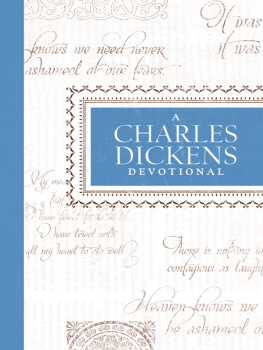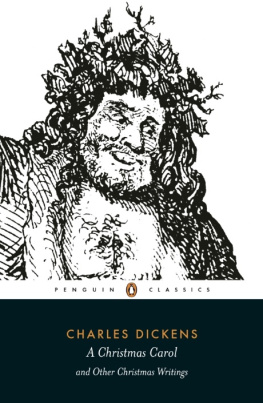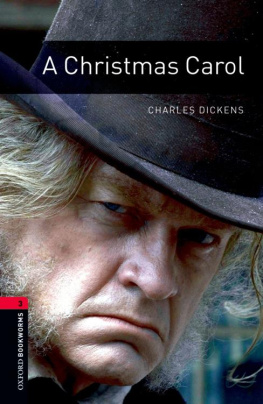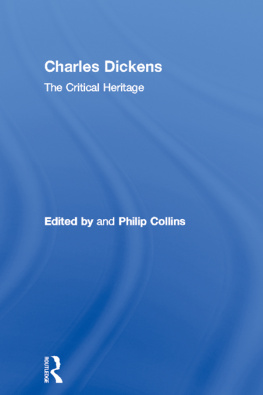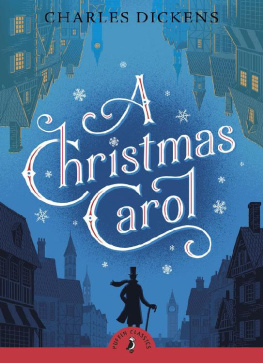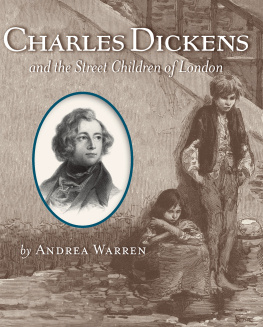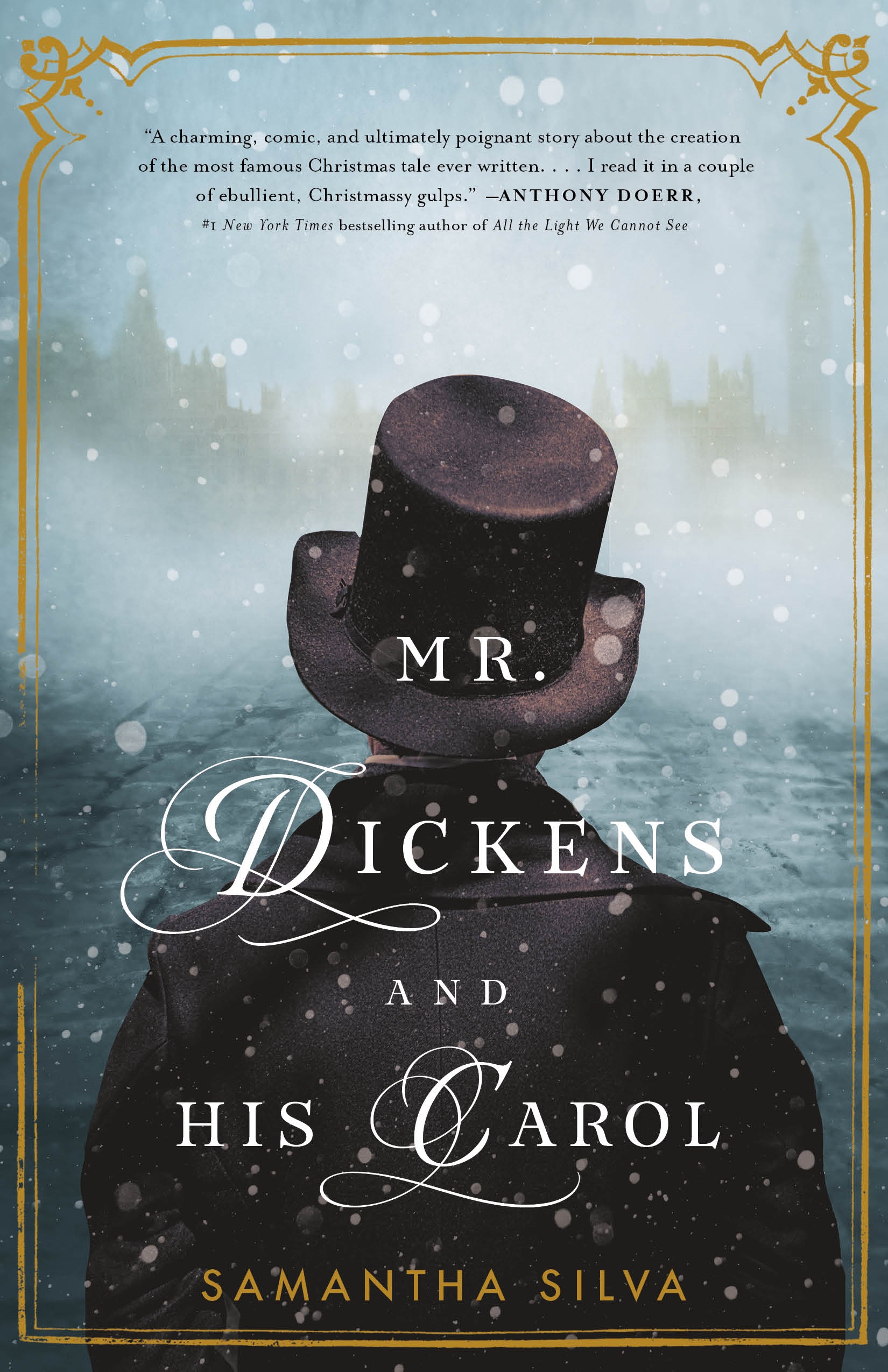Contents
Guide
Pagebreaks of the print version

The author and publisher have provided this e-book to you for your personal use only. You may not make this e-book publicly available in any way. Copyright infringement is against the law. If you believe the copy of this e-book you are reading infringes on the authors copyright, please notify the publisher at: us.macmillanusa.com/piracy.
For Atticus, Phoebe & Olive
Such dinings, such dancings, such conjurings, such blind-mans-buffings, such theatre-goings, such kissings-out of old years and kissings-in of new ones, never took place in these parts before.
CHARLES DICKENS
On that unseasonably warm November day at One Devonshire Terrace, Christmas was not in his head at all.
His cravat was loose, top button of his waistcoat undone, study windows flung open as far as theyd go. Chestnut curls bobbed over his dark slate eyes that brightened to each word he wrote: this one, no, that one, scribble and scratch, a raised brow, a tucked chin, a guffaw. Every expression was at the ready, every limb engaged in the urgent deed. Nothing else existed. Not hunger or thirst, not the thrumming of the household above and belowa wife about to give birth, five children already, four servants, two Newfoundlands, a Pomeranian, and the Masters Cat, now pawing at his quill. Not time, neither past nor future, just the clear-eyed now, and words spilling out of him faster than he could think them.
The exhilaration of his night walk had led him straight to his writing chair by first morning without even his haddock and toast. Hed traversed twice the city in half his usual time, from Clerkenwell down Cheapside, across the Thames by way of Blackfriars Bridge, and back by Waterloo, propelled by a singular visionthe throng of devoted readers that very afternoon pressing their noses against the window of Mudies Booksellers, no doubt awaiting the new Chuzzlewit installment, with its flimsy green cover, thirty-three pages of letterpress, two illustrations, various advertisements, and the latest chapter of pure delight by the Inimitable Boz himself! Why, it was plain to him that humanitys chief concern, now that Martin Chuzzlewit had sailed for America, was the fate of Tom Pinch and the Pecksniffs, and he considered it his sacred duty to tell them.
And so Charles Dickens didnt hear the slap-bang of the door knocker downstairs that would alter the course of all his Christmases to come.
Like any man, hed known a good share of knocks in his thirty-some years. Hard knocks at lesser doors, insistent rap-rap-raps on wind-bitten, rain-battered doors whose nails had lost all hope of holding. And with fame came gentler taps at better doors, pompous, pillared, and crowned thresholds in glazed indigo paint, like his own door two floors below, where the now-polite pounding was having no effect at all.
Because there are times in a mans life when no knock on any door will divert him from the thing at hand, in particular when that thing is a goose-feather pen flying across the page, spitting ink.
When the fusee table clock on his desk struck straight-up three, a smallish groom (as was the fashion) with fiery red hair (as wasnt the fashion at all) appeared at the study door with a tray of hot rolls, fancy bread, butter, and tea. Dickens dotted his final i , brandished his pages, and stood.
Topping! Ive just this moment finished the new number.
Wot good news, sir.
Dickens took a roll and tore a bite out of it, his hunger returning. Everythingthe whole houseseeped back into his awareness. Oh, glorious Devonshire Terrace, a house of great promise (at a great premium), undeniable situation, and excessive splendor. He was glad for the great garden outside, the clatter of crockery and clanging of tins in the kitchen downstairs, the chatter and play of his children somewhere above. And here was Topping right in front of him, vivid as ever, in his usual tie and clean shirtsleeves instead of a livery, with no sense of impropriety, and a kindly expression that asked what more he might do, because doing was what he liked best. He was the longest-lived of the household servants, and Dickens regarded him most like family of them all, something between the father hed always wanted and the brother he wished his were.
Oh, Topping. He leaned in, clutching his pages. I believe I have once again stumbled upon perfection.
Topping squinched his eyes as a way of smiling without showing his teeth, which went in every direction except straight up and down. Dickens felt a great affection for him, for everyone, even the handsome house itself, which had subdued itself all day in the service of his art. He was sure he had Topping to thank for it.
A sustained holler from the bedroom upstairs announced Catherine Dickens in the full tilt of a labor of her own. The two men looked up and held their breath until it stopped. Dickens smiled with one corner of his mouth, wistful. Another child was nearly born, he knew, if stubbornly resisting its arrival into the world.
I suppose it altogether too much to think Catherine would hear it now, he said with a playful frown.
Toppings caterpillar brows arched and fell in ironic agreement. Well, sir. Masters Chapman and Hall are downstairs.
Chapman and Hall, here? Dickens returned the half-eaten roll to the tray and trusted his pages to Topping. He sprang for the mirror to quick-comb his hair, fasten his green velvet waistcoat, and fluff his blue satin cravat. Apparently even my publishers cannot wait to know what happens next!
They do sit a bit on the edge of their seats, sir.
Splendid. I shall read it to them!
Topping looked at the pages, curious. May I ask, does Chuzzlewits man Tapley have, this month, a line or two?
Or three, or four. Dickens turned with a wink, retrieved the pages, and tapped them three times for luck. I think it far and away my finest book.
Topping blinked in solidarity and stood aside. Dickens rounded the brass ball at the banister and skittered down the stairs by twos. He had that feeling of finishing that had always been for him like floating, air under his feet and lungs like full sails. It seemed wrong to be going down when he should be soaring instead, but down he went, pages tight under his arm, edges ruffling as if with their own excitement. He thought it only his due, Chapman and Hall at his door instead of him at theirs. And so, like an actor expecting an audience squeezed into the pit and overflowing the gallery, he bounded into the drawing room to greet them, only to find the publishing partners sitting stiffly in a pair of pink parlor chairs, looking like cold fried soles.
Chapman! Hall! Dickens offered his hand as the partners stood. What a surprise.
I hope not an unpleasant one, said Hall, with his fingertips-only handshake, limp as old lettuce.
Certainly not. Dickens gave Chapman a warm double-hander. Of course, normally you wouldnt be the first to hear it, but never mind that.
He stepped onto his favorite footstool and bowed theatrically, stirring the air with his pages. Gentlemen, I give you the next installment of everything that matters.
Charles, interrupted Hall. Weve come on a matter of grave importance.
Dickens peeked over his pages. Hall gripped his top hat with sharp white knuckles. Chapman mopped his beading brow.
In fact, we drew straws, said Chapman, pulling a broom bristle from his pocket.


